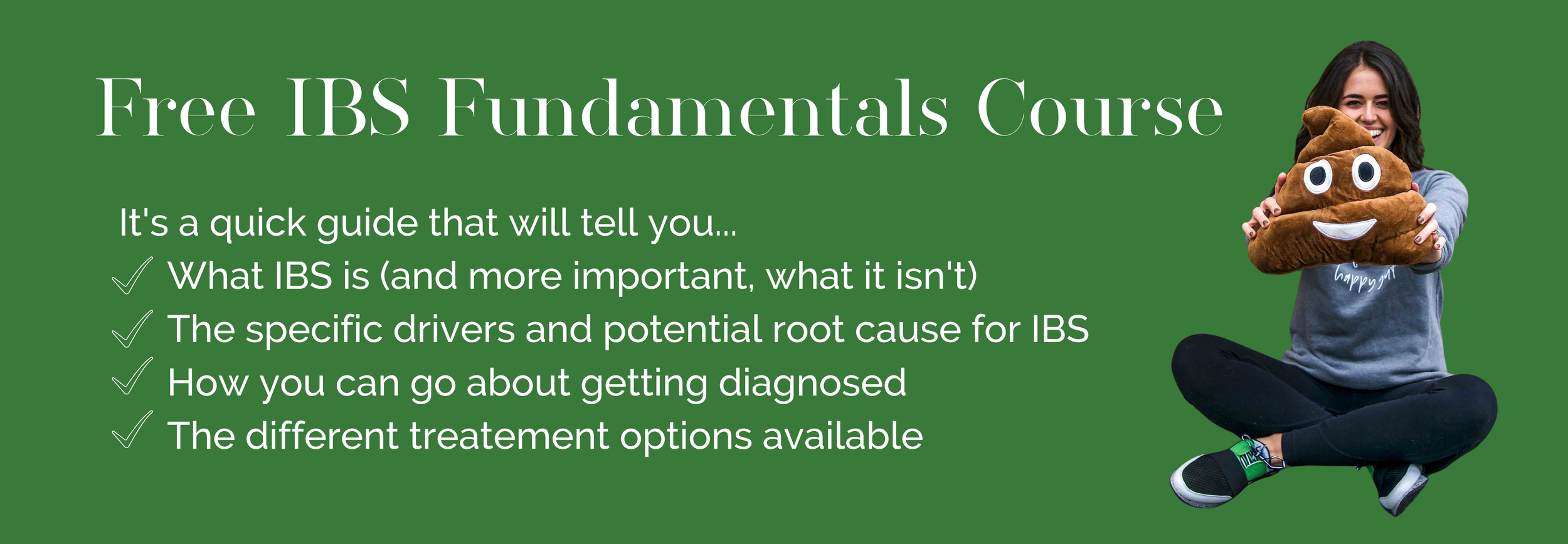A Beginner’s Guide to Micronutrient Deficiencies in IBS
Today’s post is from our guest-blogger, Kim Rose!
Kim Rose, RDN, CDE, CNSC, LD is Clinical Nutrition Manager at an acute care hospital with close to a decade of clinical inpatient experience. She received her bachelor’s degrees in Exercise Science and Dietetics from the Florida State University and finished her dietetic internship at the St. Louis VA Medical Center.
After working for 4 years as an inpatient dietitian and recognizing from her personal experience dietetic interns, Kim decided to make the path to becoming a dietitian easier for the next generation by starting her YouTube channel. Thus far, the most popular topics Kim addresses on her YouTube channel include nutrition support, therapeutic diets, and medical nutrition therapy. In her spare time Kim enjoys spending time with family and friends, nerving out in dietetics, and spending time in nature.
Connect with her here!
I think we’ve all come to the conclusion that dietary modifications are a necessary part of managing IBS. Adhering to a low FODMAP diet may not only keep digestive disorders at bay, but when done properly ensures you are receiving enough protein, fat and carbohydrates in your diet. These substances, collectively known as macronutrients are involved in tissue repair, cell growth, and provide the body with a source of energy.
Even though you may consume enough calories in the form of protein, fat and carbohydrates hidden hunger may still exist. Hidden hunger is simply a micronutrient deficiency that results from a lack of vitamins and minerals. Specifically, in the IBS community hidden hunger may result when foods are substituted in particular foods groups. As a result “iron, B vitamins, and calcium” may be lacking in the diet (Staudacher, 2017)
What’s your poop personality? Find out here!
Iron
Iron is a trace element that is fundamental for the maintenance of health. In other words, though your body does not need a large supply of iron, it is still mandatory in small amounts. Iron is needed to manufacture blood within the body and a deficiency in iron is distinctly known as iron deficiency anemia. Wheat containing grains are enriched in iron. Such foods are a big no-no for someone who has IBS.
Fortunately, a variety of meats, seafood, dark leafy green vegetables, broccoli, and peas among other FODMAP friendly foods contain iron. The plant based sources of iron, better known as nonheme iron, are more readily absorbed in the body when paired with an acid. For instance, combining dark leafy greens with oranges, strawberries and lemon juice enhances the absorption of nonheme iron and may assist in combating iron deficiency anemia.
B Vitamins
Thiamin, riboflavin, and niacin are common B vitamins which are necessary for the normal functioning of the central nervous system, macronutrient metabolism, and energy production. Populations at risk for these B vitamin deficiencies are individuals with malabsorption issues and those who may have a limited intake.
A rich source of these B vitamins are found in enriched and/or fortified whole grain products which may not be a part of a FODMAP friendly diet. Fortunately, sunflower seeds, organ meats, fish and poultry are some food sources to increase your consumption of thiamin, riboflavin, and niacin, respectively.
Calcium
Of all the micronutrients, calcium is the most concerning because a diet low in calcium may result in osteoporosis. Osteoporosis, which results in weak and brittle bones, may be prevented if adequate calcium is consumed. For someone who adheres to a FODMAP friendly diet, milk (which is known to be the most popular calcium rich food) is not an option. Fortunately, nut beverages fortified with calcium are a proper alternative.
One example of this is almond milk. In the United States it is recommended that persons between the ages of 9 and 50 years old get 3 servings of milk or calcium rich foods on a daily basis. Persons who adhere to a FODMAP diet can try Swiss cheese, coconut yogurt, and soy protein as other calcium rich options instead of milk.
Sources:
https://onlinelibrary.wiley.com/doi/10.1111/jgh.13688
https://www.ncbi.nlm.nih.gov/pmc/articles/PMC5143456/
Are you frustrated with your IBS symptoms? Do you desire to be confident in your food choices? Do you want to have a healthier relationship with your body and diet? Are you ready to take control of your IBS?



